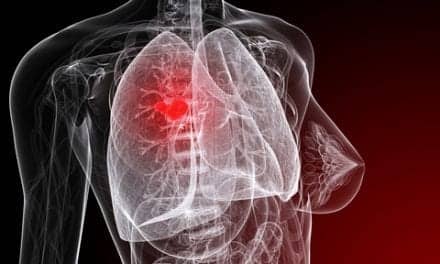Researchers have found that long-term lung cancer survivors show an increased prevalence of dyspnea within 1 to 6 years of tumor removal. The study, published in the Journal of Thoracic Oncology, surveyed 342 early-stage lung cancer survivors and found dyspnea in 205 individuals (60%), nearly three-fold the number of patients who presented with dyspnea before their surgery (21%).
Additional findings showed that facts associated with long-term dyspnea in cancer survivors included presence of dyspnea before lung cancer surgery, reduced diffusion capacity, and lack of physical activity. Depression symptoms were also assessed, but were not prevalent in the study sample—occurring among 10% of lung cancer survivors—but were nonetheless strongly associated with dyspnea.
“The identification of potentially modifiable risk factors associated with dyspnea is perhaps the most significant finding,” says Marc Feinstein, MD, assistant attending physician in the pulmonary service at Memorial Sloan-Kettering Cancer Center. “This implies that strategies which improve physical activity or relieve depressive symptoms may result in improved breathlessness.”
The researchers concluded that future research is needed to test whether screening and intervening for depression and physical inactivity among lung cancer survivors improves dyspnea in long-term lung cancer survivors.
Source: Journal of Thoracic Oncology









